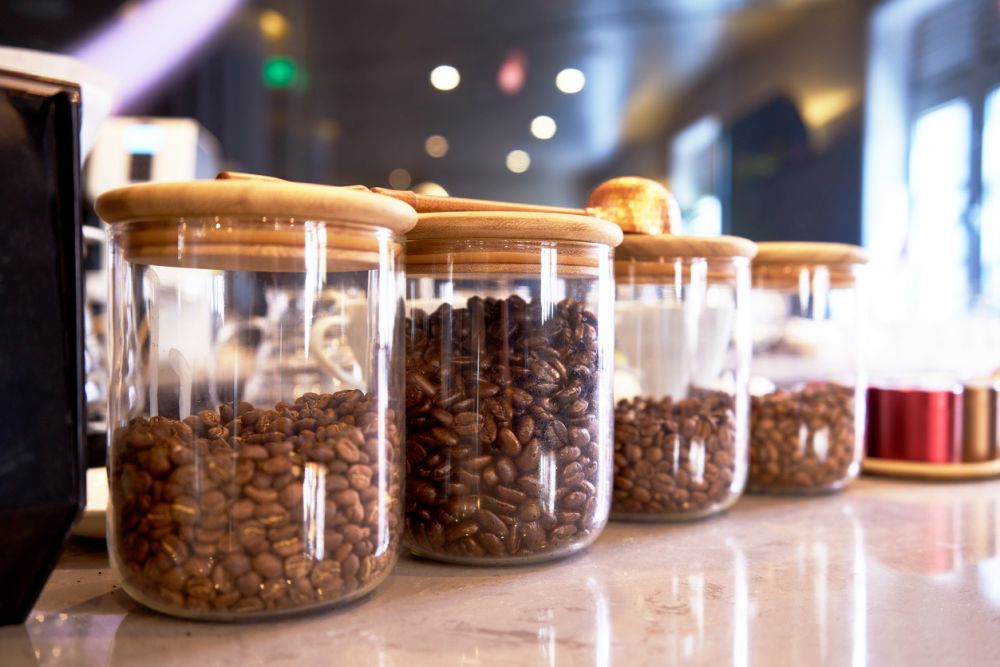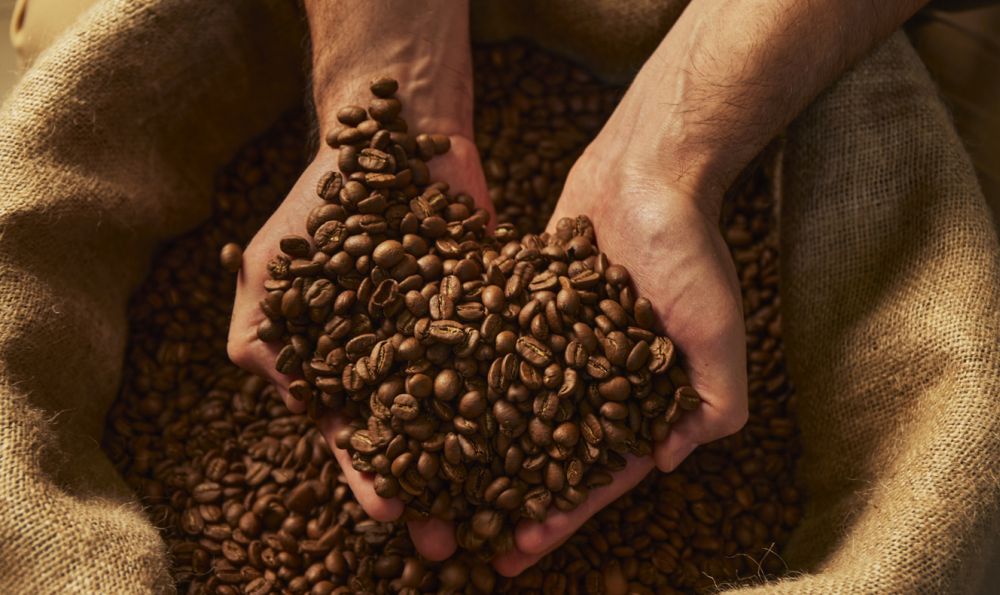Coffee is a magic elixir that most of us cannot live without. That first cup in the morning is often what gets us out of bed and moving. But many people wonder how long do coffee beans last. Keep reading to find out more.

For many of us, coffee is more than just a drink – it’s a ritual, a moment of pleasure, and a way to connect with others.
Coffee aficionados know that to truly enjoy a cup of coffee, it must be made with fresh beans. And how do you ensure that the coffee beans are fresh? The answer is by storing them properly and using them within a certain time frame.
Table of Contents
- How long do coffee beans last?
- Tips to prolong bean shelf life
- How to store your coffee beans
- Coffee bean freshness is subjective
- FAQ
- Verdict
How Long Do Coffee Beans Last?
There has been confusion regarding how long coffee beans last for many years. Some people question whether they should even be stored in the fridge.
But, if you want to get the most out of your coffee beans, it’s important to know how long they will last and what steps you can take to ensure they are fresh when brewed.
Coffee beans can last from 2 weeks to 2 years, depending on bean type and roast method. For example, light roast beans go stale faster, while dark roast beans last longer.
This answer is never easy, as it can depend on many factors like the roast date, coffee bean type, and storage conditions. Besides, it’s completely subjective since some people don’t get bothered by stale coffee.
Tips to Prolong Bean Shelf Life

Check out the following tips and tricks to extend the shelf life of your favorite coffee beans:
1. Check the Roast Date
Buying the coffee beans from a reputable place should make you trust they are fresh. Still, it’s a good idea to verify the roast date if you’re worried about your coffee going bad or stale but lack trust in your abilities as a coffee bean sommelier.
Most coffee beans are labeled with a roast date. If the date is relatively close, chances are your coffee beans will remain fresh longer.
But you should also keep in mind that coffee bean types have different shelf lives. So, if your favorite doesn’t come with a roast date label, always research to find out how long it lasts.
2. Use an Airtight Container
Coffee beans left exposed to the elements or unsealed in an environment without oxygen won’t last long. It’s because coffee beans have natural oils that oxidize in time. And oxidation leads to the degradation of the bean compounds, making it hard for you to enjoy the aroma later.
So, make sure to store the coffee beans in an airtight container to ensure your coffee beans stay fresh longer. Keep in mind that it’s not an indefinite method since the beans will eventually go bad (only slower).
That’s why it’s vital to check the roast date and use the beans within a few weeks of purchase; they will start losing their flavor and freshness after.
3. Try Nitrogen Flushing
When it comes to coffee bean freshness, nitrogen flushing is often mentioned as a way to prolong the shelf life. Nitrogen is an inert gas that can help preserve the flavor of coffee beans by preventing oxidation.
So you can try nitrogen flushing to make your coffee beans last longer – get a nitrogen canister and flush the bag with nitrogen before sealing and storing it away.
Most sealed coffee beans bought from a reputable supplier are already nitrogen flushed.
4. Buy High-Quality Coffee Beans
Some bean types have a shorter shelf life than others. And those with a longer shelf life are typically more expensive. It’s because they go through more rigorous processing and storage procedures to ensure they last as long as possible while still maintaining their flavor.
As such, consider spending more money on high-quality coffee beans to ensure they will last longer.
How to Store Your Coffee Beans

It’s essential to store your coffee beans properly to keep them fresh longer. Here’s how:
- Transfer the beans to an airtight container to keep the oxygen out and prevent oxidation.
- Move the coffee to a cool, dark place since light and heat can cause the beans to lose their flavor and freshness.
- Use the beans quickly after buying or roasting them – the sooner you do this, the better they’ll taste.
Coffee Bean Freshness is Subjective
Each person decides how fresh their coffee beans are, depending on their preferences. Someone who’s pickier about the scent might find their beans to be stale, but it can be perfectly fine for someone else.
In other words, it’s not an exact science but a matter of taste; you can’t just stick a gizmo inside a bag of coffee beans to have their freshness analyzed.
So the best tool is your nose: just crack the bag open and give it a whiff. If the aroma invades your nostrils and makes inhale deeper, it means your coffee beans are still kicking.
On the other hand, if the aroma is faint or if you barely smell anything although your nose is right up against the bag, it usually indicates that the beans are on the verge of going stale.
As you can imagine, it’s pretty subjective: some people don’t care about a faint aroma, while others want their coffee beans as fresh as possible.
The Ultimate Test: Brewing Black Coffee
Although it’s an unlikely scenario, your coffee beans might be so stale that they’re starting to grow mold, which is dangerous. If you get the tiniest whiff of mold, know that the entire bag is compromised, so you should dispose of it right away.
The best way to figure out if your coffee beans are still fresh is to brew a cup of black coffee. It’s the simplest version of the beverage since there are no additions like sugar, milk, or cream. If the coffee tastes good, your beans are probably safe, too.
How Long Do Coffee Beans Last (FAQ)

Discover more information about coffee beans and their durability:
How many years do coffee beans last?
It’s difficult to answer because it depends on many factors, including the coffee bean type, roasting method, and storage conditions. Generally, most coffee beans last for about 3 to 5 months before they start to lose their flavor.
How do you know when coffee beans have gone bad?
Pay attention to the aroma – if the beans don’t have a scent anymore, it’s a pretty good sign they’re starting to go bad. Also check for mold or other signs of deterioration, such as dryness and discoloration.
Can you use 2-year-old coffee beans?
It’s best to discard them and buy a fresh batch, especially if they weren’t stored properly. Their flavor has degraded significantly in that time.
How long do coffee beans unopened last?
Coffee beans that are still sealed in their original package will usually last for about 3 to 5 months, depending on the bean type and storage place. To keep them fresher longer, store the beans in an airtight container away from heat and light.
Do ground coffee beans expire?
While whole coffee beans have a longer shelf life, ground coffee will only last for about 2 to 3 weeks before it starts to go stale. The grinding process exposes more of the bean’s surface area to oxygen, which causes it to oxidize and lose flavor.
Can old coffee make you sick?
Yes, because mold and other harmful bacteria can grow on spoiled coffee beans, which could make you sick if ingested. The best way to avoid this problem is to always use fresh, high-quality coffee beans for the best possible flavor.
Can you drink expired coffee beans?
While there is no definitive answer, it’s generally not advisable to drink expired coffee beans. The flavor may degrade significantly over time, and it may even contain harmful bacteria. Instead, it’s best to err on the side of caution and discard any coffee beans older than 3 months.
Can coffee beans go bad?
Yes, coffee beans will go bad over time. They contain many volatile compounds susceptible to oxidation and other reactions with oxygen in the air. To prevent this from happening, it’s important to keep your coffee beans in an airtight container away from light and heat.
How Long Do Coffee Beans Last (Verdict)
To wrap it up, coffee beans can last for quite a long time when stored properly. However, it’s crucial to pay attention to stale signs, such as a loss of aroma or flavor. If your beans are older than 3 months, it’s healthier to discard them and buy fresh ones.
At the end of the day, the best thing you can do is use your nose and instincts to see if your beans are still fresh. Simple storage methods should take care of things if you’re concerned about how long they’ll last. But it’s really subjective, which means there’s no right or wrong answer – it’s up to you!
Leave a Reply